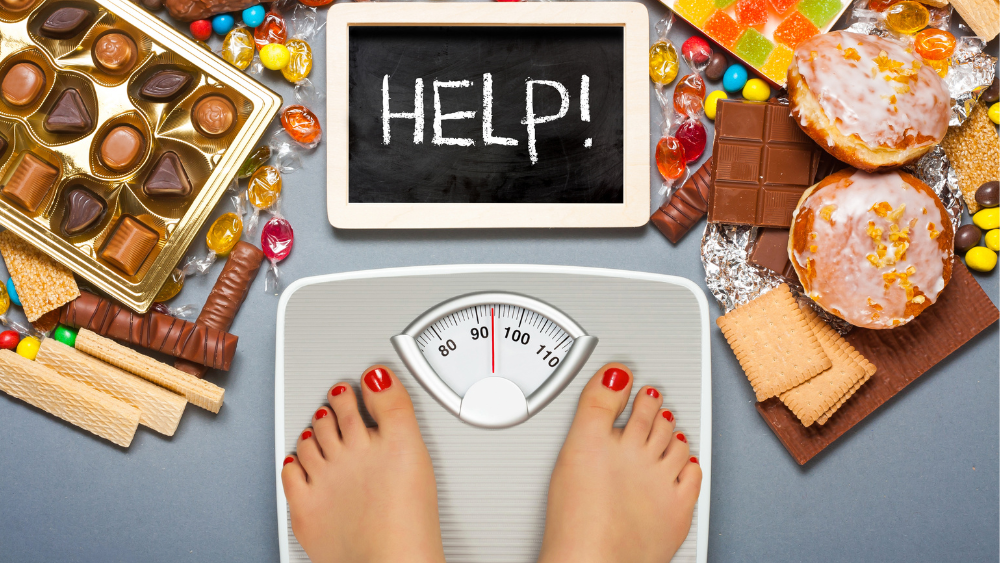
While working and living in Okinawa, Japan, I served as an Ambassador for National Eating Disorders Week (sponsored by National Eating Disorder Association) as resources during that time, were VERY limited on our military bases for service members and their families. I don’t consider myself to be an eating disorder expert but I did learn a ton when serving in this role. I learned more about binge eating, anorexia, and bulimia. I also learned that disordered eating was a bigger problem than I could have imagined!
Shortly after, I started working on a PhD in women’s studies. More specifically, the correlation between trauma and emotional eating. I researched for approximately sixteen months before deciding to adopt a baby instead of pursing my studies. I learned the college was also not accredited but that is another story for a different day.
Let’s start with foundational information…
Emotional eating, according to the National Eating Disorders Association, is defined as using food to cope with negative emotions. This can include comfort eating when you're stressed, bored, or sad. It's a common problem that can lead to weight gain and other health issues. If emotional eating happens with boredom, sadness, and stress, it is easy to see how it can become a maladaptive coping mechanism for trauma survivors. Food, especially carbs and sugar are comforting and soothing (in the short term).
Thus, it shouldn’t be surprising that there is a strong link between trauma and emotional eating. When people experience trauma, turning to food is an easy way to cope with icky, yucky, and shitty emotions. This can lead to a vicious cycle of emotional and binge eating. Like any drug, this addiction cycle can be difficult to break. However, it is possible to break any of our unhealthy behaviors. With the right support, you can learn to cope with any of your emotions in a healthy way as well as develop a healthy relationship with food.
Cognitive Behavioral Therapy (CBT) - A Part of the Solution
CBT is an evidence-based therapy focusing on changing thought patterns. Learning how to change our thought patterns is vital if we want to change the way we feel and behave. CBT has been proven to be an effective treatment for trauma related symptoms including emotional eating.
Ways CBT can help decrease emotional eating:
- Identifying Your Triggers
CBT can help you identify your triggers for emotional eating to avoid them in the future. Trigger foods are often high in sugar or fat and can be easy to eat without thinking.
- Tracking Your Thoughts
Tracking your thoughts about food leads to greater awareness. After all, we can’t change what we aren’t aware of. CBT techniques train us to better identify and challenge our negative thinking patterns. For example, if you believe you need to eat to feel better, CBT can help you recognize that this is a negative thinking pattern. Once you are aware of the negative thinking pattern, you can begin challenging it (see analyzing your thoughts below).
- Organizing Your Thoughts
CBT techniques teach how to place your thoughts into categories. These categories are core beliefs, conditional beliefs, and specific beliefs. Understanding and organizing our beliefs help us sort how we view ourselves and our world (not just food). This is essential in helping you develop healthier coping strategies for dealing with negative emotions.
- Analyzing Your Thoughts
When I teach CBT, there are five analytical techniques to challenge thinking patterns. These techniques help you to decide if your thoughts are objective, useful, consistent or logical. Learning to analyze the way we think is a powerful way to make lasting change.
- Decreasing the Intensity of Your Emotions
Another technique of CBT (as well as Exposure Therapy) teaches how to bring down emotional intensity by first ranking emotions on a SUDS (Subjective Units of Distress/Disturbance) Scale. This technique includes VCI (Voluntary Cortical Inhibition) which is just fancy terminology for thought stopping. The technique is a bit complex for describing here but the goal is to bring down the intensity of your thoughts in a systematic way.
- Replacing Your Thoughts (Countering)
Once we have worked our way through all the above techniques, we take your most stubborn and persistent negative thoughts and write counter statements. Counter statements work best when they are short and to the point.
Additionally, CBT can teach about managing emotions in a way that does not involve food. This might include relaxation techniques or how to deal with stressful situations. Finally, CBT can help you maintain your weight loss by teaching you how to cope with emotions in a way that does not involve food.
A Life Changing Offer
If you're struggling with emotional eating, cognitive behavioral therapy may be able to help. CBT can help you identify your triggers, change your thoughts about food, and develop healthier coping strategies. If you're ready to make a change, CBT may be the right choice for you.
If CBT peaks your interest, https://www.healthrivedream.com/cbt-classes/. Why not do this for yourself?
Bible Planner For Survivors
Perfect way to keep your thoughts, prayers, and sermon notes organized and help you keep track of your spiritual journey and growth.



